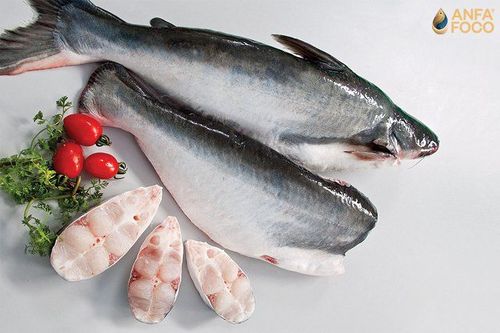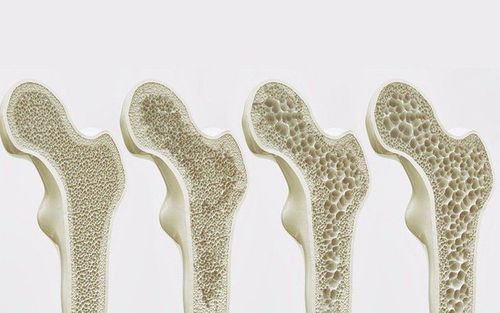Basa fish is a high-quality source of protein and healthy fats, such as omega-3 fatty acids. Its low price and availability make basa fish suitable for many family meals. So, what is the nutritional composition of basa fish?
1. Origin of Basa Fish
Basa fish is a white fish found abundantly in the Mekong River and Chao Phraya River, which flow through several Southeast Asian countries. This fish is a type of catfish, with the scientific name Pangasius bocourti. Due to low costs for breeding, farming, harvesting, and packaging, basa fish is widely exported to different countries worldwide. It has a wide body, a small head, and firm flesh. Additionally, basa fish has a mild flavor, making it a popular seafood dish in restaurants. In India, basa fish is often incorporated into traditional recipes.
In importing countries, basa fish is commonly used as a substitute for cod or haddock, as they share similar flavors and textures.

2. Nutritional Composition of Basa Fish
The nutritional values in 126 grams of basa fish include:
- Calories: 158
- Protein: 22.5 grams
- Fat: 7 grams
- Saturated Fat: 2 grams
- Cholesterol: 73 mg
- Carbohydrates: 0 grams
- Sodium: 89 mg
Due to its low calorie content and high protein levels, basa fish is advantageous for those on a weight loss diet. It contains 5 grams of unsaturated fats, including omega-3 fatty acids, which are essential for maintaining optimal health for both the body and brain. However, compared to mackerel and salmon, basa fish has a significantly lower content of omega-3 fatty acids.

3. Health Benefits of Basa Fish
3.1. Promotes Weight Loss
Basa fish is beneficial for a weight loss diet. Dieters often have strict dietary requirements and closely monitor their calorie intake, making basa fish an excellent choice. A 100-gram serving contains only 50 calories, which can help prevent fat accumulation—essential for effective fat loss in areas such as the hips, thighs, and stomach.
Additionally, some studies suggest that consuming basa fish can help you feel full for longer periods.
3.2. Provides High-Quality Protein
In addition to assisting with weight loss, basa fish provides all nine essential amino acids (high-quality protein) required to synthesize important proteins in the body. These essential amino acids include histidine, isoleucine, leucine, lysine, methionine, phenylalanine, threonine, tryptophan, and valine.
Since they cannot be produced by the body's cells, they must be obtained through diet. The nutritional composition of basa fish supports body temperature regulation and provides sufficient energy for the body's development.

3.3. Contribution to Longevity
Basa is a white fish that is high in omega-3 fatty acids, a nutrient known to reduce inflammation in the body.
Additionally, omega-3s help prevent stress and fatigue, protect heart function, and support vision development in children.
3.4. Low in Carbohydrates
Basa has a very low carbohydrate content, making it an ideal choice for various diets. For instance:
- The keto diet emphasizes foods high in fat and low in carbohydrates.
- The Atkins diet aims to gradually eliminate carbohydrates.
3.5. Improvement of Bone Health
The skin of basa fish is rich in vitamin D, which is crucial for strengthening bones. Including steamed basa fillets in your diet can help prevent rickets in children and osteoporosis in adults.

3.6. Provision of Important Minerals
Eating cooked or well-grilled basa fish is an excellent way to absorb essential trace minerals such as zinc and potassium. Potassium aids in regulating the electrolyte balance in cells, supports flexible muscle contractions, and ensures the smooth transmission of nerve impulses. Meanwhile, zinc boosts immunity, facilitates cell synthesis and growth, and promotes wound healing in injured tissues.
3.7. Negligible Sodium Content
A weekly serving of basa fish contributes only 50 milligrams of sodium to your diet. This is particularly beneficial for individuals who suffer from high blood pressure, as it helps lower salt intake and normalize blood flow. Low-sodium foods are also advantageous for those with liver disease and kidney issues, as they help reduce fluid retention in the body.

4. Risks of Eating Basa Fish
Like any type of fish, basa fish carries certain risks. The causes may stem from:
- Basa fish is contaminated by pollutants and waste products such as mercury and polychlorinated biphenyls (PCBs) from industrial sources. Consuming fish contaminated with these substances can lead to various health issues over time.
- The environments where basa fish are raised may be susceptible to pollution from chemicals and medications used to combat pathogens. Despite these concerns, experts suggest that the levels of heavy metal residues in basa fish are within safe limits.
To ensure safety, it is important to prepare and cook basa fish properly, avoiding raw or undercooked options.
References: healthline.com, netmeds.com, nutritionix.com
To arrange an appointment, please call HOTLINE or make your reservation directly HERE. You may also download the MyVinmec app to schedule appointments faster and manage your reservations more conveniently.








